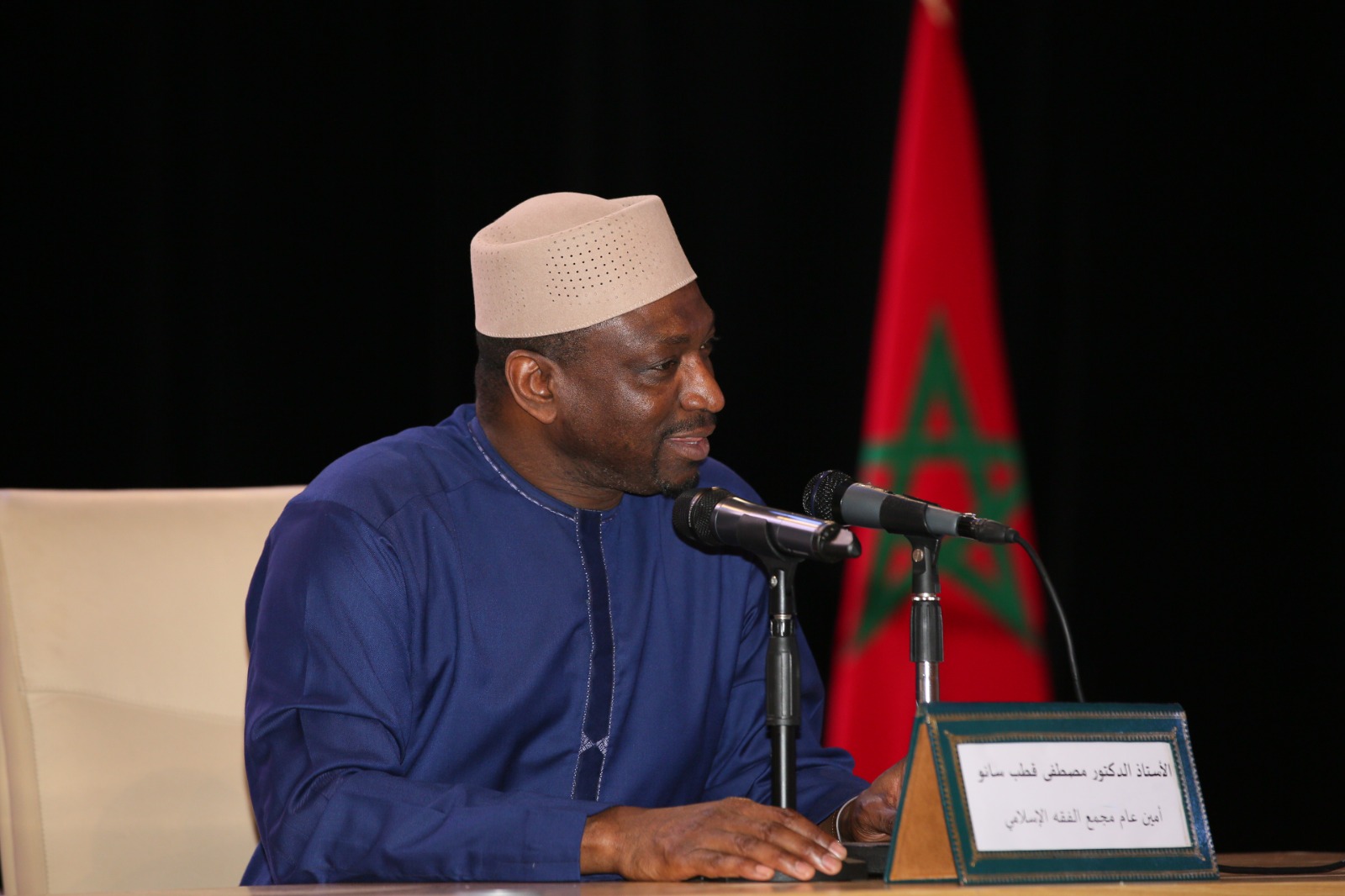
On the sidelines of his participation in Al-Hassaniya Lectures, H.E. Prof. Koutoub Moustapha Sano, Secretary General of the Academy, delivered, on Tuesday, 20 Ramadan 1444, corresponding to 11 April 2023, a scholarly lecture at the Institute of Imams in the Moroccan capital, Rabat.
His Excellency began his lecture by overviewing the term Ijtihad in the fundamentalist lesson, indicating its legitimacy derived from the Noble Qur’an and the Prophet’s Sunnah, highlighting its importance and necessity in every era and place, which confirms the relevance of Islam for every time and place, stressing that highlighting the flexibility and eternity of Sharia depends on Ijtihad, which makes it impossible to say that “the gate of Ijtihad” is closed, and the claim that Ijtihad is closed is in itself an Ijtihad.
His Excellency also spoke in some detail about the divisions of ijtihad, and the types of mujtahids, speaking of the most important division of mujtahids, which is the division that divides them into independent mujtahids, absolute mujtahids, and restricted mujtahids. As for the independent mujtahid, he defined him as the scholar in whom the conditions of well-known jurisprudence were met and he was unique in developing methodologies of deduction and inference that no one preceded him to, such as Ibn Muhammad al-Sadiq (Jaafari), Imam Abdullah Ibn Ibad al-Tamimi (Ibadhi), Imam Abu Hanifa al-Numan Ibn Thabit (Hanafi), Imam Malik Ibn Anas (Malikiyah), Imam Muhammad Ibn Idris al-Shafi’i (Shafi’i), Imam Ahmad Ibn Muhammad Ibn Hanbal (Hanbali), Imam Dawood bin Ali Al-Isfahani (Zahiri), Imam Al-Tabari, Imam Al-Awza’i, Imam Al-Thawri, and others.
As for the absolute mujtahid, he is the scholar in whom the well-known conditions of ijtihad are met, but he did not independently develop methods of deduction and inference of his own, but rather chose to adopt one of the methods of deduction and inference from the imams before him, and this applies to a number of well-known scholars such as the two companions of Abu Hanifa, Abu Yusuf, and Muhammad bin Al-Hassan. Al-Shaibani, Ibn Rushd, Ibn Qudamah, Ibn Hazm, and others. They are distinguished by the fact that their jurisprudence is different than that of the founding imams of the schools that they follow. As for the restricted mujtahid, he is the scholar who met the conditions of ijtihad, but he did not unilaterally develop methods of deduction and inference of his own, and he does not contradict in his jurisprudence those of the imama of the school he follows. Ibn al-Qasim al-Maliki, Abd al-Karim bin Abi al-Fadl Muhammad bin Abd al-Karim al-Rafi’i al-Shafi’i, Ali bin Suleiman al-Mardawi al-Hanbali, and others. His Excellency also explained that reaching the aforementioned degrees of ijtihad is not impossible, especially absolute and restricted ijtihad, and he explained the importance of absolute ijtihad and its necessity in every era.
His Excellency concluded his lecture by encouraging the students of knowledge to devote themselves completely to seeking knowledge, with sincerity, perseverance and diligence, reminding them of what al-Shafi’i said in his famous poem:
O my brother, thou shalt receive knowledge only with six *** I shall describe them to thee in detail and with clarification.
Intelligence, perseverance, diligence, and eloquence *** with the company of a teacher, and a long period of learning.
Read Also
Lastest








